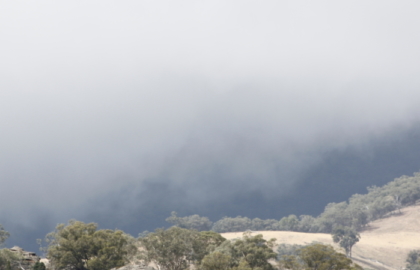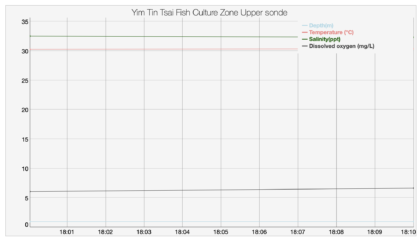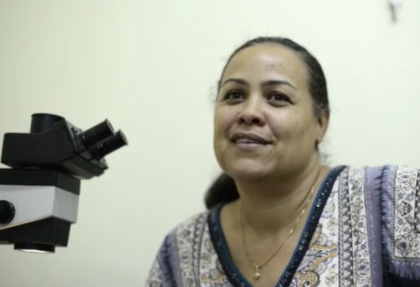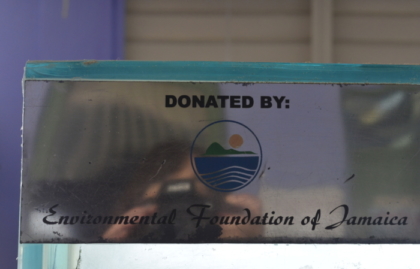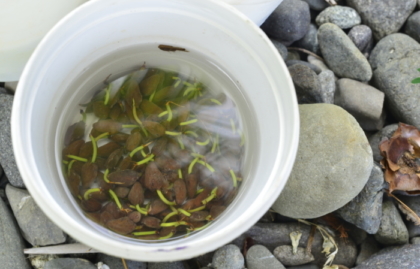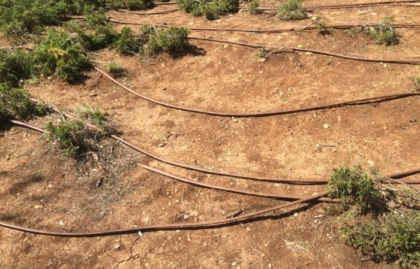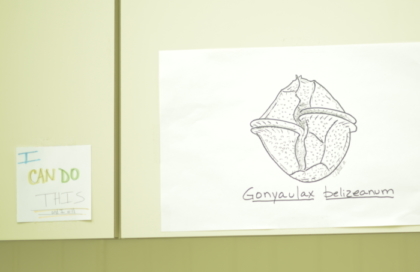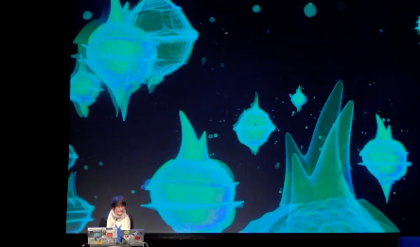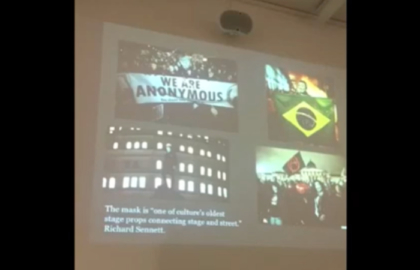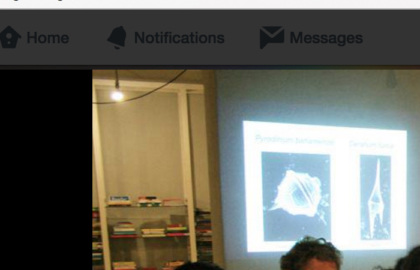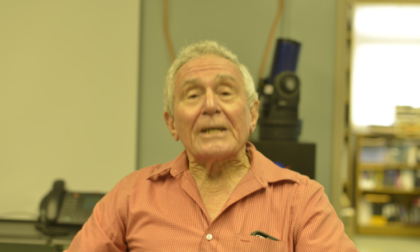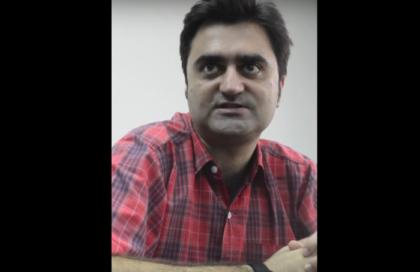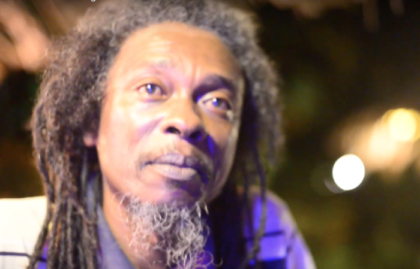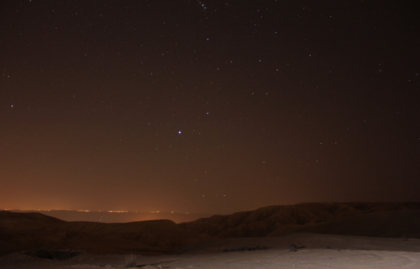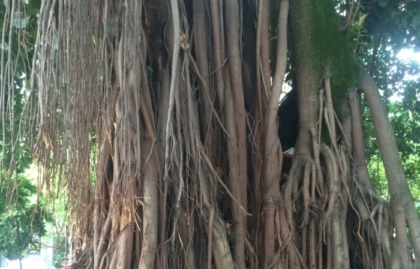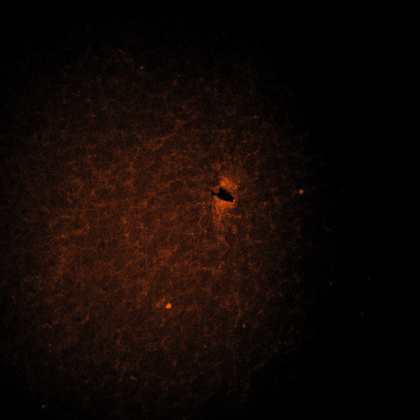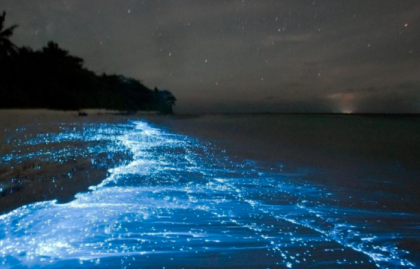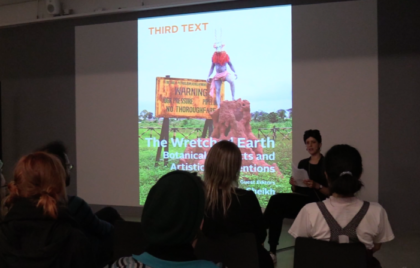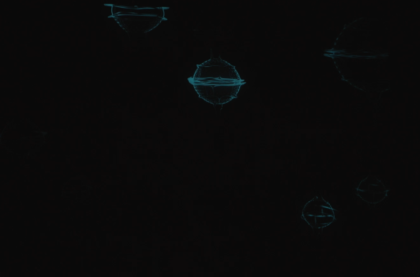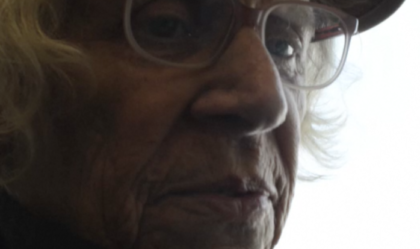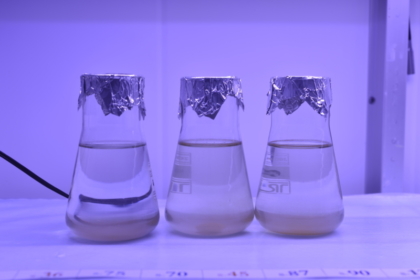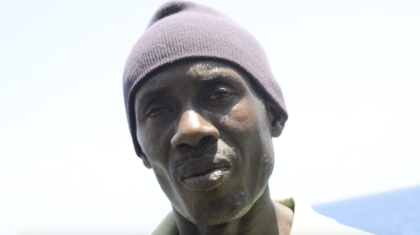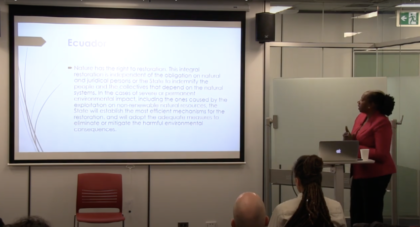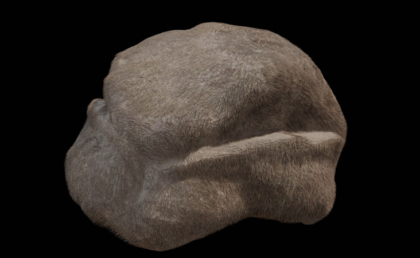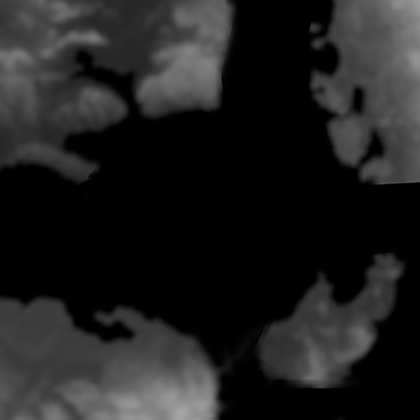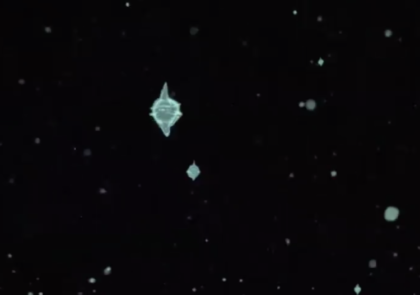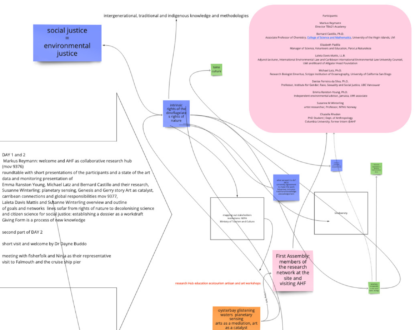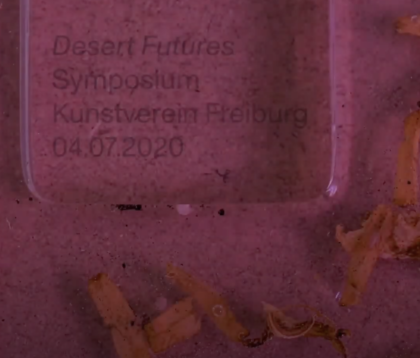more particles
to change the rules … for the voiceless
Laleta Davis-Mattis
Laleta Davis-Mattis and Susanne M. Winterling
LMD: Let’s start with our main topics of law and the environment: I think I’ve been fortunate to have been a member of the legal and technical commission of the International Seabed Authority which deals in this area because it really opened my mind to just what’s out there: the view of the ocean, to our livelihood as people and the matter of diversity issues and so on. So in a nutshell, I say, maybe that’s an indication of my work.
SMW: Is the International Seabed Authority something you recently joined?
LMD: Well, I have been part of Jamaica’s delegation to the International Seabed Authority and then I became a member of the legal and technical commission. That really gave me the opportunity to contribute in that area and to conduct further research on deep sea mining, it’s impact on diversity, how you get diversity beyond national jurisdiction. It’s a very interesting and very dynamic area of law, and I think I like the development of jurisprudence because it really transcends established boundaries in law. It changes the rules. And I think it changes the rules because, if you think about it, the client, the subject is really the environment which is voiceless, but we can’t exist without. So somebody has to speak for that, for the voiceless…
SMW: In your concrete task, what does that imply for the future of environmental law?
LMD: For 11 years I actually worked with the main environment agency in Jamaica, and I think I also have been able to contribute to the development of legislation in terms of the government. That’s another area that I find very interesting and dynamic, and it’s an area that I think I continually contribute to because my colleagues do call me from time to time and I will work on projects connected with the government of Jamaica to develop policy and legislation. I guess that’s also very fortunate.
It gives me the opportunity to look at the wider area of the environment. How do we interface with the environment? What is my personal responsibility? So instead of being an attorney who can speak on the subject – what is my responsibility when I get up in the morning? What is my responsibility to the environment? How do I have an impact on litigation measures in terms of change, for example? How do you translate that message to people? How do you translate that message to non-academics?
Because at the end of the day, we are part of this biosphere, and the biosphere can exist on its own. We are actually the problems so we need to regulate ourselves. How do we regulate ourselves in this final context when you are also seeking to develop – how do you say to a country, yes, you must eradicate poverty, but you can’t put up housing? And is there such a thing as a balance?
I don’t think there is a balance. I think the scale is a little bit tipped in either one direction. I suppose it depends on which direction you really want to tip those scales. I think when you look at the system of development, it’s not only about the law. Systemic development is incorporating environmental considerations. And it should do that for present and future generations. That’s a very mind-boggling concept as well, because if you have finite results how do you ensure the sustainable use of these finite reserves for future generations when you don’t know who the future generations are. How long will we be on earth, for example? How do we do that?
I think it’s also very much our responsibility to implement agencies for advising. How do you take environmental considerations into the law – that’s why I think the government and the assessment process is so important. And also principles such as the precaution principle and the principle of prevention: I think that’s so important that we work to really seriously incorporate them. There are some decisions that we need to be – actually not me – because in a sense, we are accountable for the generations to come and I think we should be prudent in how we make this choice because I see it as if we are trustees for the environment and the beneficiaries are the people of the world. So the common heritage of my kind being expanded.
SMW: Common heritage in the sense of a common that we need to respect and aknowledge? But what is the heritage in law terms?
LMD: Heritage: beyond the areas that you would not normally use it.
SMW: In the case of the actual problems here, how does that look like? I mean, like there was a famous speech by Michel Serres after the oil spill where he said, now what we need is to give the sea a legal status. That is a long time ago.
LMD: If you think in the development of environmental law, much has happened since the’60s. Much has happened since Rachel Carson. Much has happened since Rob Nixon. Much has happened in terms of giving a legal status to natural resources. If you look, for example, at the Alligator Head Foundation and the marine protected area: the objective really is to ensure that we bring the fishes back. And that’s twofold: one is for the sake of the fish themselves. And the other is sustainability for people who depend on them.
But there must come a point in the discussion where we’re protecting the resources for the sake of themselves because they have value in and of themselves. So the value is as natural resources. Yes, we place value on them. But they have their own existential value. They have their own value. They can take care of themselves. So we have to regulate ourselves to deal with that. And I don’t know if you recall in the early ‘70s there was a thesis written by an American jurist called Christopher Stone.[1] And in that thesis, what he really did was advocate that the voiceless natural objects – that’s what he called them, the natural resources – would have their own legal standing. It’s like the question: should trees have standing? In law, standing means ability to represent yourself. And it claims legal rights for natural objects. We have reached a point in our jurisprudence globally, meaning not every country has reached that stage, where we are recognizing that traditional persons in quotation marks, “persons” that should have legal standing and that don’t have it, should now have it.
So, for example, there are cases that speak to future generations that are not yet born: who can be represented? And that’s the whole concept of future generation equity. But that has gotten to the courts where in some cases the courts are saying, Yes, somebody from this present generation can come to court on behalf of the future generation because they have rights even though you don’t know who they are. So these are unborn people and the courts are giving rights to them.
The same thing for the environment. So even in law where you talk about the consequent damages where you have – if you, for example, are injured, then you can come forward with what we call your claim for damages. So you collect all your bills, everything you have paid, all the loss you have engaged, etc. And there’s a money value placed on that and you can go to court and you can claim that this is what you have lost because somebody who owed you a duty of care has failed in exercising that duty of care and therefore you have loss and damages.
… exerpt from a longer conversation…
1 Stone, Christopher D. (2010). Should Trees Have Standing? Law, Morality, and the Environment (3. ed.). Oxford University Press. ISBN 0-19-973607-3.
Heading The Beautyful Ones Are Not Yet Born is the debut novel by Ghanaian writer Ayi Kwei Armah. It was published in 1968 by Houghton Mifflin, and then republished in the influential Heinemann African Writers Series in 1969. The novel tells the story of a nameless man who struggles to reconcile himself with the reality of post-independence Ghana.
Thanks to Nicole Smythe-Johnson for recommending the novel.
Laleta Davis-Mattis is an Adjunct Lecturer at the Faculty of Law at The Unviersity of the West Indies, Kingston Jamaica. Her research areas include International Environmental Law and Caribbean International Environmental Law. She is also a board member of Alligator Head Foundation and the International Seabed Authority.
The conversation with Susanne M. Winterling has been a starting point for a project establishing protection of an ecosystem in Jamaica.
